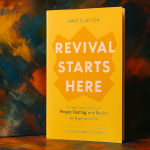 We earth-dwellers are in the interlude between ecological constraint and ecological catastrophe. Formerly our powers were so limited we lived on earth inside natural constraints; the scientific and technological revolutions, while blessing us immensely, have also given us capacities to exploit creation. We are in the interlude. This interlude observation is from George Monbiot as quoted in Richard Bauckham’s newest book, Living with Other Creatures: Green Exegesis and Theology (Baylor, 2011).
We earth-dwellers are in the interlude between ecological constraint and ecological catastrophe. Formerly our powers were so limited we lived on earth inside natural constraints; the scientific and technological revolutions, while blessing us immensely, have also given us capacities to exploit creation. We are in the interlude. This interlude observation is from George Monbiot as quoted in Richard Bauckham’s newest book, Living with Other Creatures: Green Exegesis and Theology (Baylor, 2011).
How do we live in the interlude? How do Christians live in the interlude?
It is easy to get into an argument about global warming, but there’s not much argument about what the Christian nations did to the forests of Kenya and Haiti (see Paul Farmer, Mountains Beyond Mountains). The name of the game was exploitation, and it was this kind of exploitation that led to the potentiality of the ecological catastrophe. But Bauckham shows that Genesis 1:26-28 has nothing to do with exploitation.
1. To be made in God’s image is to be appointed to stewardship, exercised on behalf of God and with accountability to God. If we read this text in light of the rest of Scripture, we see that humans are not just in a vertical relationship between God and creation but as horizontally related to creatures. (I first saw this in Francis Schaeffer’s little book on ecology when I was a college student.) The neglect of the horizontal is the “great ecological error of modernity” (4).
2. Humans, in Gen 2:7, are “earthy”: Adam is one with the ground as one from the ground. Notice that humans are created on Day 6 but humans do not get a day to themselves. They are created with other land creatures.
3. Humans are not the climax of creation; they are created on Day 6 but the climax is Day 7 where God rests. So God is the point of creation, not humans.
4. Humans are to rule, but the idea of ruling/kingship in the Pentateuch is to rule as brother (Deut 17:14-20) and not as one above or over. No tyranny here!
5. The order of creation is established before Day 6 and Day 6 does not alter the order of Days 1-3. Humans are made to dwell in and care for divine order within creation. Part of this is that humans are told to let creation sustain animal life too (Gen 1:29-30). This is a “massive restriction of the human dominion” (6).
6. The Noah story shows us that humans are to preserve species, meaning humans are to care — like God — for created beings.
7. And the sabbatical instructions of the Pentateuch show that creation is to be left alone and to be respected; it is not constant use or exploitation, but respect for in order for creation to restore itself. The wild animals get to eat too (cf. Exod 23:11).
So Bauckham sees these principles at work: humans are to care for creation; creation is theocentric; humans have a horizontal relation with other creatures; humans have a right to use within the constraints of respect for creation; and humans are to let nature be — restraint with intervention.
Then Bauckham examines God’s deconstruction of the hubris of Job (humans) in Job 38-39 where Job is exposed to his utter ignorance as God puts Job in his place. We know more than did Job, but we remain as ignorant of life’s mysteries as we are knowledgeable of the same. The more we learn the more we learn we don’t know.
Bauckham sketches two other themes: humanity as within the community of creation (the horizontal in Psalm 104) and the praise all creation gives to God (the vertical in Psalm 19).















